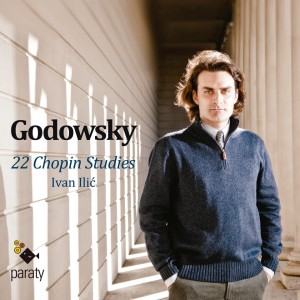
At the turn of the 20th century, the musical landscape was transformed by an outstanding generation of pianist-composers; among these, Leopold Godowsky was one of the most brilliant. It was a golden age for the piano: concert platforms were graced by the likes of Rubinstein, Paderewski, Hofmann, Leschetizky, Friedman, Horowitz, Rachmaninoff, and Busoni. Godowsky was unique among these giants in that he garnered unanimous praise among his peers, who nicknamed him ‘the Buddha of the piano’. Artur Rubinstein once said that “it would take him 500 years” to acquire Godowsky’s technique.
Numbering over 400, his compositions reflect a profound understanding of the piano’s possibilities, unmatched even by Rachmaninoff. The Russian composer once wrote that “Godowsky is the only musician of this age who has given a real, lasting contribution to the development of the piano”. Godowsky produced a treasure of compositions and transcriptions – while pursuing a busy life of teaching and performing – despite periodic setbacks and disasters that might have curtailed the output of a lesser man.

